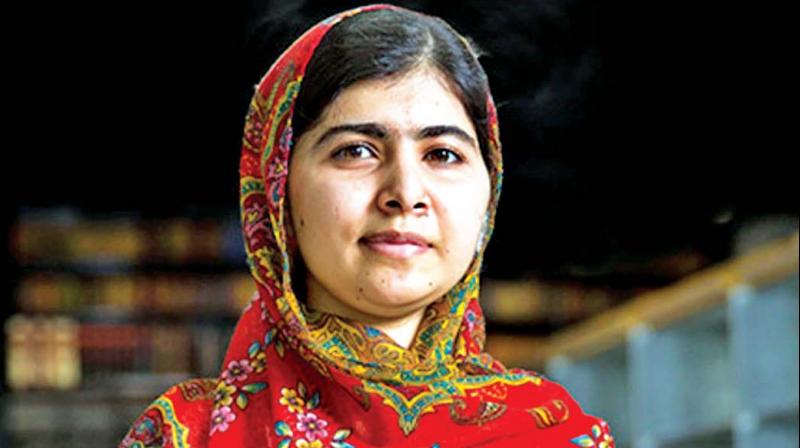Celebrating the reformers

She survived. Not everyone survives a planned bullet attack and still lives to make the world a better place in every move unless it’s Malala Yousafzai. Today, the world celebrates the birth of a young activist, who fights relentlessly for the rights of young girls. “Malala Day is not my day. Today is the day of every woman, every boy and every girl, who have raised their voice for their rights,” says the Nobel Prize winner.
The reformer has turned 20 now and has completed high school. After joining Twitter, a couple of days back, Malala has announced that she plans to resume her ‘Girl Power Trip’ to meet young girls in the Middle East, Africa and Latin America. Along with Malala, this day is a celebration for all those who fight for human rights amidst all struggles.
When asked about the biggest challenges faced while providing education to young children, Sriram Ayer from Nalandaway Foundation shares, “There is a double barrier for female children who come to study. One is the infrastructure with facilities like good sanitation, proper classrooms, teachers and more. The second factor is the quality of education. Many young girls from the rural parts fear the system. Teaching should make it more exciting to bring them forward to study.”
Stating that the gender roles in India which have been prevalent for a long time need to be broken, Nritijuna Naidu from Schools of Equality says, “Women and girls both in rural and urban backgrounds are restricted to chores at home. Parents don’t want to invest in a girl child’s education as much as a boy’s. It is very unfortunate to see higher dropping rates of girls in schools after the 10th grade. I love Malala’s efforts of going around the world and encouraging young girls to fight for their right to education, but it’s the parents who need more light on the topic. The message should be communicated and the issue sensitised to a lot of rural communities, who think that girls cannot be the breadwinners of the family.”
“Educating the girl child is not the only challenge,” adds activist Sherin Bosko, who works at the NGO, Nakshatra. Elaborating on this, she adds, “I met a 9th grader, who was raped and couldn’t continue education because her father was alcoholic and mother, schizophrenic. It was hard for her to survive in such a family and pursue studies. Although she studied in a private school, even her teachers didn’t come forward to bring her back to school. Poverty and family circumstances force children to take up jobs at a very early age. This situation needs to change.”
Revealing that Malala is a great inspiration, Dr Manorama from Community Health Education Society (CHES) says, “Educating young girls so that they can sustain themselves is the biggest need of the hour. Safe travel and lack of sanitation facilities are the two main reasons why girl children are not allowed to pursue higher studies. They need to stay with their families — and the family in turn needs to encourage them. In Krishnagiri, one school has an incinerator for disposal of napkins. Many schools have dispensers too. The state is changing slowly but the government can step in too.”
In support of Manorama’s statement, Sriram adds “The apathy of the government in this regard is a disappointment. They need to help and throw the spotlight on the hundreds of Malalas, who are making a huge change out there.” On a concluding note, Dr Manorama leaves a message for the girls — “Create your own opportunity. Fight for your opportunity!”

